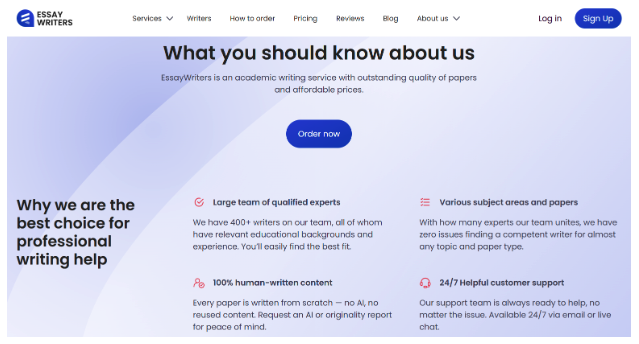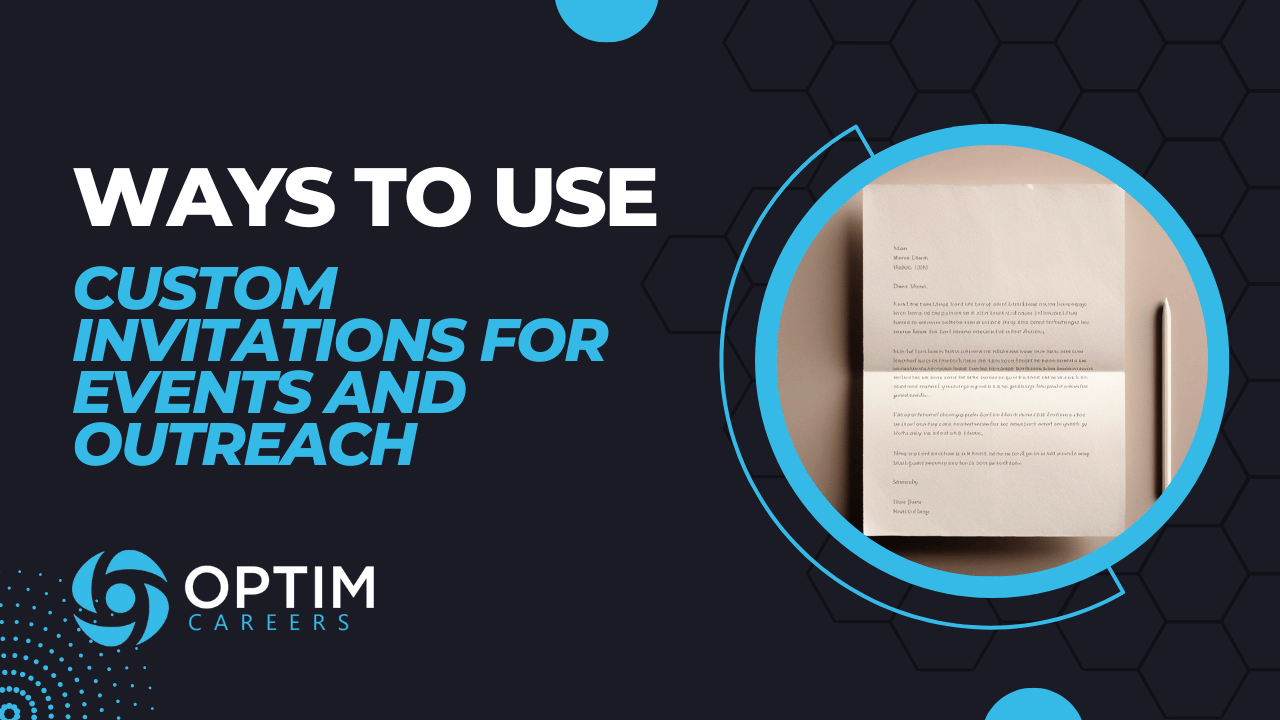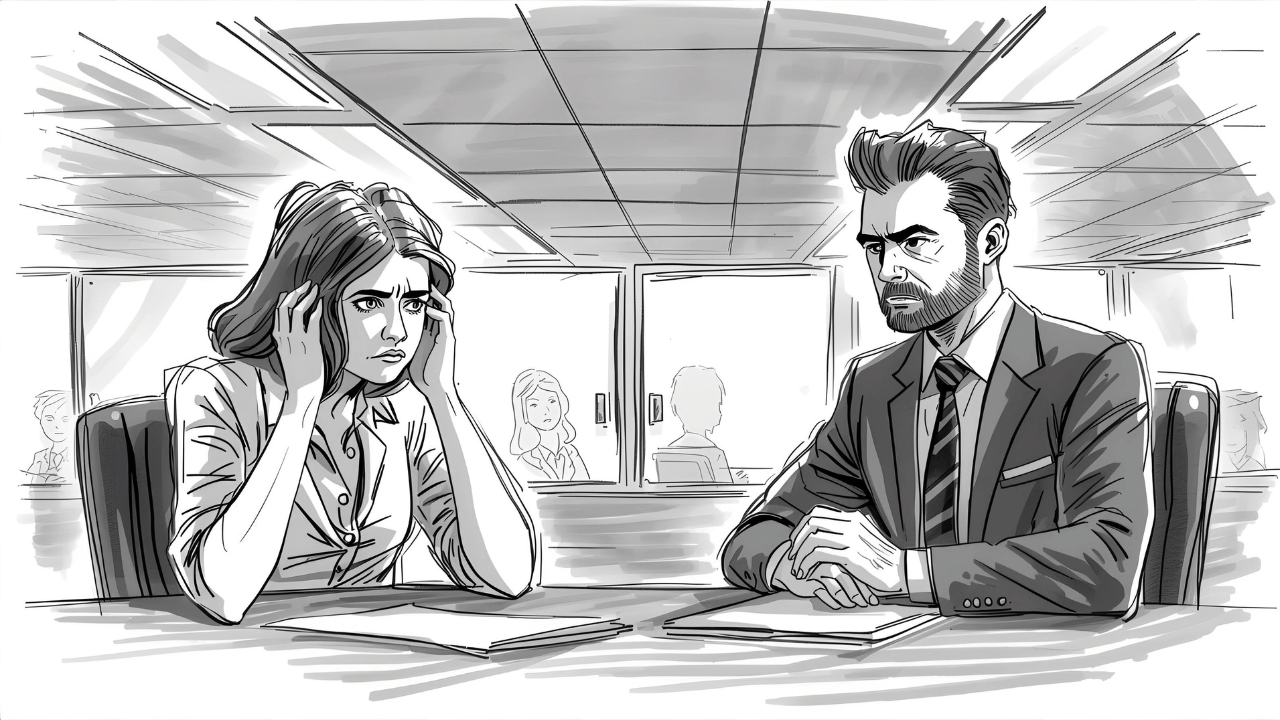Why Are You Leaving Your Current Job [9 Sample Answers]
Let’s cut to the chase on this one. Everyone asking this knows that you’re unhappy or that something at your current employer isn’t equitable. Otherwise, you wouldn’t be leaving your current employer. A better way to ask this. might be, what’s missing from your current employer or what do you hope to gain at your next job that you don’t have now.
I’ve seen all kinds of clever answers from former recruiters, career coaches, and bloggers. Things like, “My boss is really good at being hands-on, but I’m hoping to have more room to spread my wings.” If you try to be clever, I think you lose. Interviewers aren’t dumb. Answers like this aren’t clever at all.
This isn’t a trick question though like some would tell you. It’s pretty straightforward. However, there are better ways than others to respond so you don’t sound like another boring candidate talking about career growth or pay increases.
What you’ll find by reading this article is that the way you deliver your message matters just as much as the reason.
P.S. You can also use these tips to answer the question, “Why Did You Leave Your Last Employer?”
Why Interviewers Ask “Why Are You Looking to Leave Your Current Job”
If you want to answer an interview question well, you need to know the motivations behind why it is asked.
I’ve worked with hundreds of hiring managers over the years and I don’t think they ask this question to determine whether you’re on good terms with your current or prior employer like some people suggest.
Most hiring managers I’ve worked with know that not every job is a fit for everyone and not every manager is a good one. What they really want to know when asking this question is to understand your motivations, your priorities, and what you are looking for in your next job.
Interviewers want to know your reasons for leaving so they can make sure it won’t be a reason you’ll leave them too. Because the past often predicts the future, the interviewer wants to make sure whatever current mismatch exists won’t also exist if they hire you.
There is also one more reason interviewers will ask this question. Many interviewers want to know that you’re not a quitter when things get tough. They want to know that you tried other ways to remedy the situation and that you didn’t look to abandon ship and look for another job at the first sign of unhappiness.
Should Interviewers Ask This Question
If you are an interviewer, you should know that this question often places people in defensive mode. It may be better to ask them what they hope to achieve in their next job at their next company instead.
You could ask about the environments where they do their best work or the types of people that inspire them to perform at their best. You could also ask about what was missing in their last job that they wished wasn’t.
Framing your questions around these will often lead to better answers in my experience.
How to Answer Why Are You Leaving Your Current Job
Regardless of why you are leaving your current or last job, I’ve found this four-step process the easiest way to answer without raising red flags and pesky follow-up questions that you may want to avoid. It works well with most potential employers.
Explain Your Reasons for Leaving
You have to answer the question. If you’re like many people I speak with, chances are there are several reasons that have led you to the decision to leave your current employer. Whenever possible, pick one that aligns with what the new job offers. In other words, the new job will most likely provide this for you, but the old one didn’t.
Explain the Mismatch Between Your Current Skills and Your Previous Job
There are many reasons a mismatch could exist. It’s possible you’ve outgrown your old job or the job has changed. Whatever your situation, explain it and why it no longer fits your long term career goals.
Explain Why This Job Is a Better Fit
Depending on when you are asked this question, you may be better positioned to answer this part. Either way, make an educated assumption about why you think this job will be a better fit and that mismatch won’t exist.
Ask Them a Question
The best interviews feel like conversations and that involves tossing the ball back when you’re finished speaking. Otherwise, it’s like playing a game of catch when the other person catches the ball and never throws it back - how boring.
If the interviewer has been with the company for some time, I like to ask them what has made them stay with the company for so long. You may get some great insights from asking this question.
How to Answer Why You Are Leaving Your Current Job Template
The best template I’ve ever seen is from Jan Teagze, author of Job Search Guide: Be Your Own Career Coach. Jan is the Director of Talent Acquisition at Tricentis and an expert on how hiring is done.
Jan suggests this template.
I’ve learned a lot in my current role, especially about (pick a specific skill that is relevant to the job you’re interviewing for). However, I’m eager to take on new challenges that align more with my goals of (a specific goal that you could work toward or obtain in this new job), and I see that opportunity here with (new company name).
This works great if you’re leaving a job because of stagnation, if the job has changed, or if you want a promotion and no opportunities exist at your current employer. By framing it this way, you’ll avoid some follow-up questions that could raise red flags.
Why Are You Leaving Your Current Job Sample Answers
This week I went back through some of my interview debriefs with candidates over the years and picked out some of the best answers I’ve ever heard to this question. All of these are from candidates who answered the question well and moved on to the next round of interviews.
I’ve tried to turn them into templates that could apply to multiple situations. Take what you want from them and make these samples your own.
Don’t Like Your Manager
My manager and I had different views on the best way to accomplish (pick a goal). I appreciated their (pick a positive characteristic) and they really helped me develop (pick a skill), but I’m looking forward to taking on challenges that allow me to be creative with my problem-solving and explore different ways of solving them. I saw you mentioned that you’re looking for someone who is a creative problem-solver in your job listing and I’m excited to explore that potential with you.
Your Role Changed
As the company shifts its priorities, my role is changing too. I’ve spent the past 5 years developing (pick a skill) and not only am I good at it, but I really enjoy it and sadly that will no longer be a part of my day-to-day as the role changes, which is why I’m here with you today to see if your opening may be the place where I can continue working in my area of greatest expertise.
Company Experiencing Layoffs
The company is going through a massive restructuring currently and they’ve downsized several teams. It would be remiss of me to think that my position won’t be affected eventually as well, so I’ve started looking for roles, like yours, where I can continue to apply my (pick a skill) to solve (pick a problem).
Wanting a Promotion
I’ve thoroughly enjoyed my time with (current company) and the people there are great; however, after 4 years of becoming an expert at (pick a skill) and leading small teams I think it’s time to continue my career journey into management and that’s not possible at my company. They’ve done such a good job at retaining people, that management roles rarely become available. And that’s why I’m here to see if (new company) may be the place for me to continue my professional development and increase the impact I can have on your organization.
Career Change
I view life as an exercise in learning and sometimes the only way to know what you’re good at and enjoy doing is to just try it. I’ve also found that’s the best way to realize what you don’t enjoy doing as well. I’ve enjoyed my time at (current company) and I’m blessed that I had the opportunity to work cross-functionally on (new job function) several times. Through that, I’ve learned that I’m most passionate and really good at (new job function) and that’s why I’m here to explore your job opportunity.
Merger and Acquisitions
It’s fairly common for private equity-backed companies to sell companies every 3 years. When that happens, there’s usually two of every role between your company and the new one that acquired you which results in downsizing. (Current company name) laid off 8 of us on my 10-person team because of this. I learned a lot about (pick a skill) during my time there and I’m used to this cycle. So here I am, exploring the next company I can help (pick a challenge or goal) until they experience their next exit strategy.
You Were Fired
I want to clear the air and any assumptions about my last employer. I was fired. I found it wasn’t the best idea to take a job with a 2-hour commute. It was a challenge to anticipate traffic each day and arrive on time and that eventually led to my separation with (current company). This won’t be a problem here because it took me 15 minutes to get here today.
Returned to School
I enjoyed my time as a paralegal working on compensation-related and employee relations issues, but I felt that to land a role in human resources, it would benefit me to return to school for my MBA and a degree in HR. I made the decision to leave (last company) so I could focus full-time on my academic studies which would position me in front of people like you for the HR jobs that I not only had some experience with as a paralegal, but also the education necessary to perform well.
Currently Working and Happy
I love my current work environment and team, but a friend sent me your job and after reading about (pick something that interested you), I couldn’t resist applying to learn more about the company and the opportunity to work on (specific type of work).
Bad Example Answers You May Have Seen and Should Avoid
I also want to take a minute to share some bad examples that I’ve seen others share and why I don’t think you should copy them. Some of these are from big-name publishers and if you come across them, please avoid them.
Bad Example 1
As much as I love my current company, I don’t feel as though I’m learning anything new and I don’t feel challenged enough in my current role. I’m always looking for new ways to progress in my career and never want to feel complacent in any position. It’s time for a change.
Why I Don’t Like It: It doesn’t show accountability. A statement like this makes it sound like it’s the employer’s job to teach you and that you can’t learn independently on your own. It can also sound like you don’t take personal accountability and action for your own development.
Bad Example 2
One of the reasons behind my decision to leave is my desire for continuous learning. By transitioning to a different organization, I think I can experience new projects, collaborate with different teams, and acquire new knowledge that will help me personally and professionally.
Why I Don’t Like It: It raises a lot of follow-up questions. In particular, it makes me question how quickly you will get bored of things and seek something else that is new and novel. It also is very one-sided. The answer is all about what's in it for you and doesn’t give any indications about what the employer could hope to gain from having you on the team.
Tips for Answering This Interview Question
Keep It Brief
Your answer should be fairly short, but not so much that you raise concerns that you’re concealing something. If your answer is one to three sentences and takes 20 seconds to 2 minutes to respond, you’re in good shape.
Focus on the Future
As you saw in the how to answer section above, you don’t want to dwell on the past. Interviews typically have a natural progression. Interviewers often start by asking questions about your past, then the present, and then the future (if you’re lucky to progress that far). You can help this progression by tying it all together and focusing on the future.
Keep It Positive
Interviewers are a funny bunch sometimes. There’s this unspoken rule about talking bad about other managers and employers. And I get it, no one wants to be talked about behind their back, and doing it in an interview isn’t a good look - no matter how much that SOB you worked for before deserves it.
This can be a challenge to do, especially if you’ve come from a toxic work environment, but it can be done.
Discuss Skills and Alignment
One of the best things you can do for yourself is discuss your skills and how they align with the job you’re interviewing for when answering. You can see this play out in Jan’s template above. Do this and it will help them see that you’re a good fit for the job.
Pick an Honest Answer
If you try to give some half-thought or BS answer, the interviewer will know and have a lot more questions (whether they ask you them or just make assumptions on their own). You need to give an honest answer. Many of us leave employers for a number of reasons, not just one. Find one that you feel comfortable sharing using the guidelines in this article.
Be Specific
If you answer that the work wasn’t challenging enough, the interviewer is going to wonder if their work will challenge you or if you’ll just leave them too. This is why I love the template I gave earlier because it forces you to talk about specific skills, specific goals, and specific challenges you want to face. This removes any gray area in the interviewer’s mind.
If You Were Laid Off
Organizational restructuring, mergers and acquisitions, and layoffs occur in all kinds of companies all the time. It’s not something to be ashamed of or hide; however, there are still some people out there who may associate it with performance.
Instead of telling an interviewer that you were laid off or let go, let them also know that your entire team was let go in a reduction of force. This helps remove those thoughts from the interviewer’s head. If you were part of a team of 10 and you and 2 others were laid off, that might not look great, but if you and 7 other people were laid off, you should share that.
If You Were Fired
Look, things happen. Before I talk about answering in this situation, I think you should know that most references done with HR will only release your job title and the dates you were employed with that company. Many companies will not discuss anything else due to policy and fear of liability. Things may not be as bad as you might think they are if you were fired.
With that being said, if you were fired, do not blame your employer. Shifting blame is not a good look. You need to take accountability for whatever part you owned. It’s important in these situations to take accountability, be clear about what you learned from the experience, and state how you will avoid similar experiences in the future.
I’ll give some examples for this situation in a later section.
Prepare For Follow-Up Questions
Depending on your reply, you may prompt additional questions. Try to prepare for any of these ahead of time. For example, if you are seeking a promotion or the opportunity to develop some new skill, the interviewer may ask you about how you tried to pursue that at your current company.
If you left because of a conflict or issue, be prepared for questions about how you tried to resolve that before deciding to leave and look for a new job.
Things to Avoid When Answering This Interview Question
Negative Talk
Keep the conversation positive, even if your soon to be ex-boss is a real you know what.
Blaming Others
I alluded to this earlier. No one likes a blame shifter (even if it was someone else’s fault). Take accountability for your choice to leave your current or last employer.
Jokes
Yes, it’s tempting, but don’t do it.
Generic or Vague Answers
If you want to annoy the interviewer, give some generic answer like, “I’m looking for new challenges.” Well, thank you Captain Obvious. Others that are equally as bad are “I’m looking for better career growth, better compensation, or a better boss.”
It’s not that these are bad reasons, they’re just bad answers. No one likes a boilerplate reason that sounds like ChatGPT wrote it.
Redirecting
There is some advice that suggests you don’t explain your reason but instead focus on the new job. Don’t do this. Every time I’ve seen someone do this it results in a frustrated interviewer. If you’re lucky they’ll ask again. If you’re not, they’ll cut the interview short because you can’t give them a direct answer.
Conflicts
If you had a conflict with a previous employee or your supervisor, I would avoid mentioning that here. It might come up later if they ask you about how you handle conflict, but this isn’t the best place to discuss it. Usually conflicts are not a good reason for leaving.
Other Statements to Avoid
I want more money
I don’t like the company or my boss
I’m bored at work
I don’t like the hours at my job
I want more work life balance
I’m looking for growth opportunities
Reasons for Leaving a Job
You’ve heard it multiple times that people don’t quit jobs, they quit bosses. Well, not exactly. People quit jobs for all kinds of reasons. Here are some common reasons for leaving that may also be the reason you’re looking to quit your job.
You don’t enjoy the work you’re doing.
Your goals have changed.
You’re stuck in a role with no promotional or lateral opportunities.
Your job duties have changed and no longer fit your goals.
Your supervisor left the company.
You’ve outgrown your role and are now overqualified.
You need a more stable job with fewer ups and downs.
Your family circumstances have changed and the job no longer fits your lifestyle.
The job wasn’t what you expected (it was sold to you as something different).
You feel burned out and need a change of work.
Your work schedule has become too demanding.
You are relocating.
You were laid off.
You were fired.
You returned to school for more education.
New management is bringing in their own people.
Your company was acquired or merged with another.
Economic downturn in your industry.
Your company is restructuring.
You want to change careers or move to a new industry.
You need more pay or better benefits.
Why Are You Leaving Your Current Job Recommended Reading
Why Are You Interested in This Position [Interview Guide]
How to Use AI For Interview Prep
Cole Sperry has been a recruiter and resume writer since 2015, working with tens of thousands of job seekers, and hundreds of employers. Today Cole runs a boutique advisory firm consulting with dozens of recruiting firms and is the Managing Editor at OptimCareers.com.
Get Smarter About Job Search
Members get exclusive job search analysis, a curated coaching feed, and on-demand coaching.


















